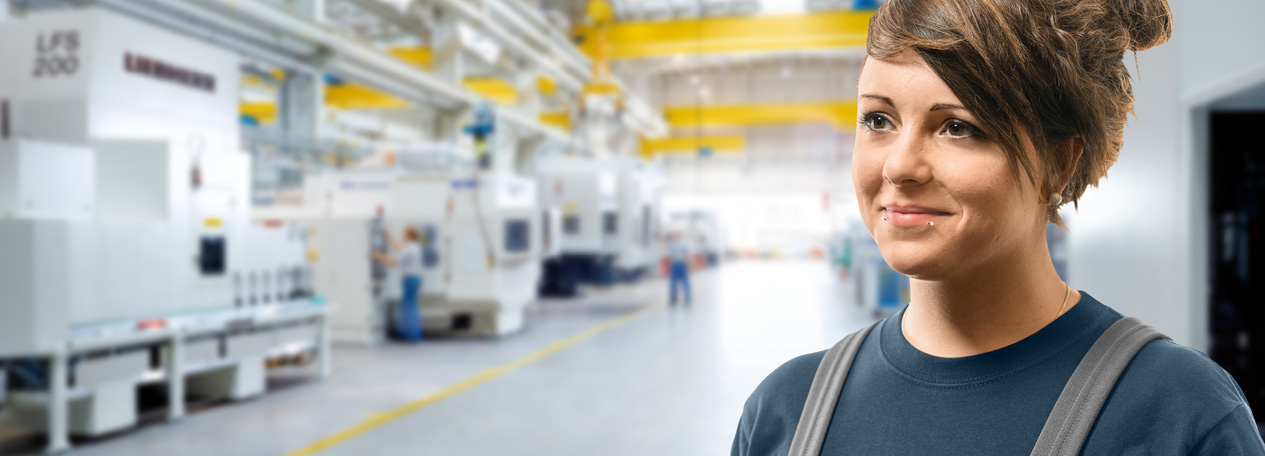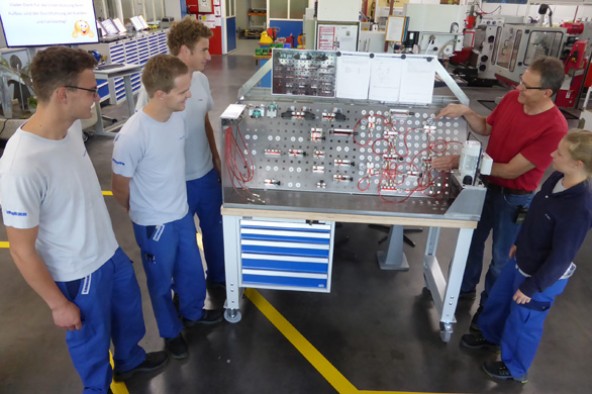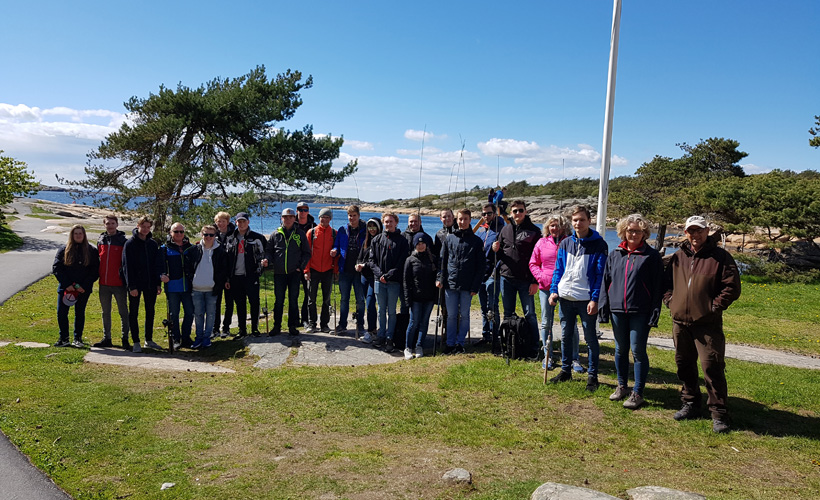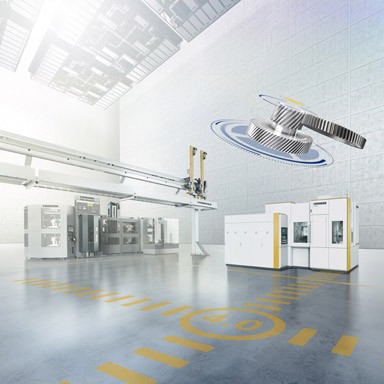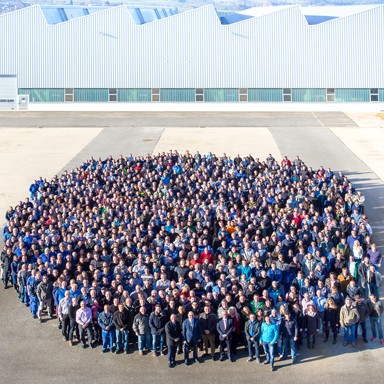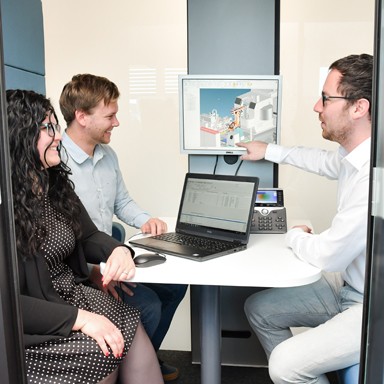We have to prepare our young professionals in this regard so that in the future they are able to communicate, plan and work together in international, interdisciplinary teams.
Increasing quality expectations of customers, globalisation and Industry 4.0 – are the three major factors of today’s work environment. In order to do justice to these expectations, Liebherr-Verzahntechnik GmbH has further developed the trade training programme for industrial mechanics to set new standards and, with pioneering concepts, is demonstrating how the company can succeed in responding to these requirements in a timely manner. “The big technical challenges that we are adjusting to the increasing interplay of electronics and mechanics as well as progressive digitalisation”, explains Walter Ferstl, Head of Trade Training at Liebherr-Verzahntechnik GmbH. “We have to prepare our young professionals in this regard so that in the future they are able to communicate, plan and work together in international, interdisciplinary teams.”

